Les Krims at the GEH.
The emperor’s self-designed new clothes. On the nakedness and rawness of esthetic erring and treasures of imaginative energy wasted.
© Bruno Chalifour, September 10, 2010.
[After listening to him at the GEH on September 9, 2010 presenting his work but above all–time wise–renting against academia (but not relinquishing his tenure position), “the left, the communists and the liberals” and a few feminists. Using blind insults, angry stereotypes, outrageous caricatures).]
Listening to Les Krims is enlightening. The sheer blindness and extreme narrow-mindedness of his thinking, in spite of a somewhat brilliant imagination, is in fact enlightening. It raises the issue of content in a piece of art, and how relevant it should be regarding the very definition of the term.
At first sight (no pun intended), Krims’s very elaborate tableaux are entertaining: they seem to combine the shock of the new and the freshness of provocation. They stay with the beholder and his/her legendary eye and alleged idiosyncratic taste (also alluded to by Krims, another cliché on the road to hell I guess). Some of his images have accompanied me for decades and a “Les Krims” is easy to identify. The guy had style, his own often-rehashed style–the one for which he is known and with which he will be buried, the one he seems to be leaving by the wayside on his way to Photoshop and HDR. When he strays from it using HDR the way a college student would, the results are just disappointing. So many years of practice to come to that! Banging one’s head too many times against the same relenting issues leaves traces. Krims is a casualty of the world he has carved for himself out of resentment, anger, and outrageous positioning towards his own world–as proved many times by his reiterated lashing against academia that provides him with a living from which he has not walked away. Put your actions where your mouth is Les! Les pretends to be Don Quixote: he does have his wind-mills and his Sanchos (the willing side-kicks of his photographs, sometimes his own students) but he lacks the guts and the action.
Krims’s world seems to have something not so much of Dada but of surrealism in its challenging of established values, its association of unlikely elements, and maybe, to a point its use of the human, often lightly-clad, body, especially female. It is definitely a male vision and a male’s world. Beyond the entertainment and the rubbing of ideas that Krims’s work surely generates, what had always bothered me was its overwhelming irony, acidity and repeated, overstated tone, its strange relationship with sexuality, the female body, including his own mother’s body. I have no competence in psychology, psycho-analysis, or even psychiatry, for lack of a better word it feels strange if not weird, it feels singularly deprived of tenderness, love or even empathy (even his most recent HDR “street” portraits convey that very same impression). Les Krims has become a blind, bitter, pontifying old man. It is disheartening especially when you compare him to some of the photographic academic “liberals” against whom he constantly and indiscriminately lashes: Nathan Lyons, Carl Chiarenza, John Pfahl, Jerry Uelsmann… Krims never does it namely, except against a few feminist extremist of the 1980s and the Society for Photographic Education, of which the above-mentioned luminaries (and Krims’s local colleagues, two of whom Lyons and Chiarenza even attended his talk at the GEH) were co-founders.
Krims, just as Peter Witkin has, has created his own idiosyncratic world and brings it to us. However in many cases it is a narrow and closed world within which his imagination thrives. It lacks the humanist and artistic background and motivation of Witkins’s world. Can diatribe be art? Can art be the result of a mind, a world that has narrowed itself to a cell? At his point the reader may have figured out my answer to the question. Art and somewhat content may be in the eye of the beholder (who must be full of it by now), but I know many a beholder that would agree with me and with whom I would agree. Relativism too is relative and after all revisionism is there to be revised, isn’t it?
Bruno Chalifour, Rochester 2010.
Subscribe to:
Post Comments (Atom)





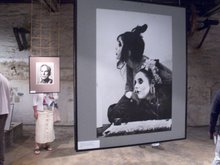

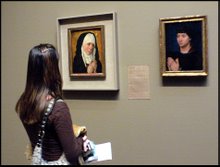
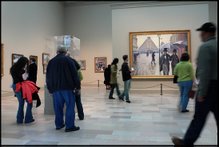






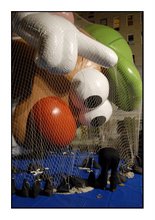
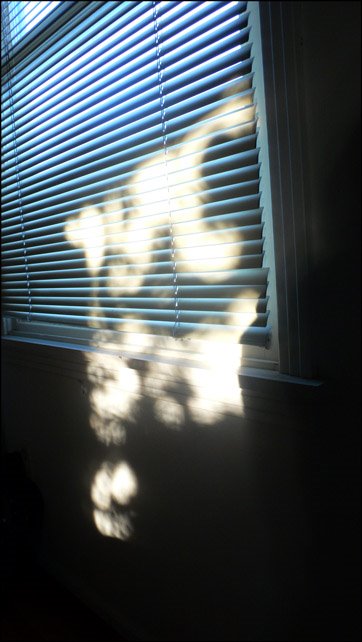

No comments:
Post a Comment